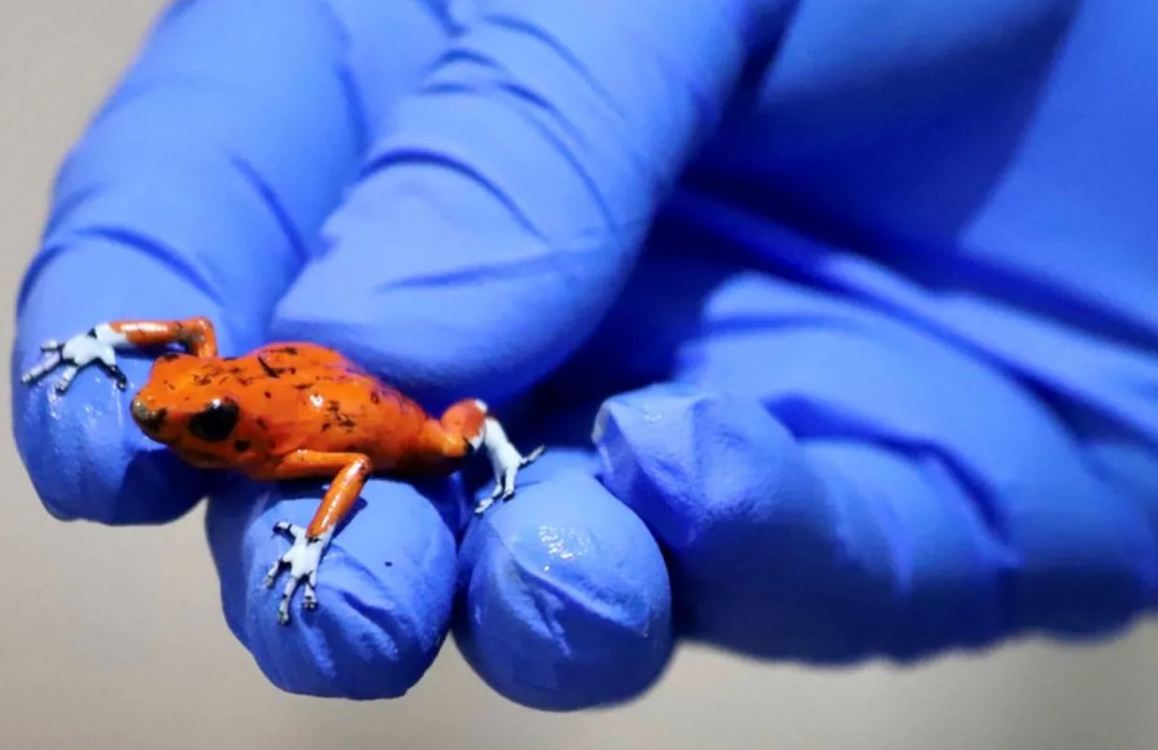A Brazilian woman has been charged with wildlife trafficking in Colombia after authorities found 130 poisonous frogs in her luggage at Bogotá airport. The frogs, identified as Harlequin or poison-dart frogs, were discovered dehydrated and stressed in small film canisters. The woman, en route to São Paulo via Panama, claimed the frogs were a gift from a local community in southern Colombia. Harlequin frogs are highly endangered, with their toxic skin secretion making them valuable in international markets, where they can reportedly fetch up to $1,000 each. Possession of such frogs can result in fines reaching 56 million pesos ($14,300).
The frogs, scientifically known as Oophaga histrionica, are native to humid forests along the Pacific coast from Ecuador to Colombia and other parts of Central and South America. Their toxic secretion, historically used by indigenous people for hunting, is potent enough to kill small animals. Due to their endangered status, they are attractive to private collectors, contributing to wildlife trafficking in the region.
Colombia, like many Latin American countries, faces challenges related to wildlife trafficking, given its rich biodiversity. Amphibians, small mammals, and marine animal parts, such as those from sharks, are among the frequently trafficked items. The discovery of the poisoned frogs at the airport underscores the ongoing battle against illegal wildlife trade and the need for stringent measures to protect endangered species.






0 Comments